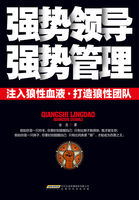In the ancient survey of Glastonbury Abbey, compiled in 1189, the questions to be answered by the jury are enumerated in the following way: 'Who holds freely' and how much, and by what services, and by whose warrant, and from what time? Has land which ought to perform work been turned into free land in the time of Bishop Henry, or afterwards? By whose warrant was this change made, and to what extent is the land free? Is the demesne land in cultivation, or is it given away in free tenure or villain tenure; is such management profitable, or would it be better if this land was taken back by the lord?'(94*) The contrast is between land which provides labour and land which does not; the former is unfree, and villain tenure is the tenure of land held by such services; portions of the demesne given away freely may eventually be reclaimed. The scheme of the survey made in answer to these questions is entirely in keeping with this mode of classification. All holdings are considered exclusively from the economic point of view; the test of security and precarious occupation is never applied. It is constantly noticed, on the other hand, whether a plot pays rent or provides labour, whether it can be transferred from one category into the other, on what conditions demesne land has been given to peasants, and whether it is expedient to alter them. Let us take the following case as an instance: John Clerk had in the time of Bishop Henry one virgate in Domerham and holds it now, and another virgate in Stapelham for ten shillings. When he farmed the Domerham manor he left on his own authority the virgate in Stapelham and took half a virgate in Domerham, as it was nearer. This half virgate ought to work and is now free. And the virgate in Stapelbam, though it was free formerly, has to work now, after the exchange.(95*) The opposition is quite clear, and entirely suited to the list of questions addressed to the jury. The meaning of the terms free and freedom is also brought out by the following example. Anderd Budde holds half a virgate of demesne land, from the time of Bishop Henry, by the same services as all who hold so much. The village has to render as gift twenty-nine shillings and six pence. Six pence are wanting (to complete the thirty shillings?)because Anderd holds more freely than his ancestors used to.(96*)Such phraseology is by no means restricted to one document or one locality. In a Ramsey Cartulary we find the following entry in regard to a Huntingdonshire manor: 'Of seven hides one is free; of the remaining six two virgates pay rent. The holder pays with the villains; he pays merchet and joins in the boon-work as the villains. The remaining five hides and three virgates are in pure villainage.'(97*) The gradation is somewhat more complex here than in the Somersetshire instance: besides free land and working land we have a separate division for mixed cases. But the foundation is the same in both documents. Earlier surveys of Ramsey Abbey show the same classification of holding into free and working virgates (liberae, ad opus(98*)).
In opposition to free service, that is rent, we find both the villenagium (99*) and the terra consuetudinaria or custoniaria,(100*) burdened with the usual rural work. Sometimes the document points out that land has been freed or exempted from the common duties of the village;(101*) in regard to manorial work the village formed a compact body. The notion which I have been explaining lies at the bottom of a curious designation sometimes applied to base tenure in the earlier documents of our period -- terra ad furcam et flagellum,(102*) fleyland. The Latin expression has been construed to mean land held by a person under the lord's jurisdiction, under his gallows and his whip, but this explanation is entirely false. The meaning is, that a base holding is occupied by people who have to work with pitchfork and flail, and may be other instruments of agriculture,(103*) instead of simply paying rent. In view of such a phraseology the same tenement could alternately be considered as a free or a servile one, according to its changing obligations.(104*) Some surveys insert two parallel descriptions of duties which are meant to fit both eventualities; when the land is ad opus, it owes such and such services; when it is ad censum, it pays so much rent. It must be added, that in a vast majority of cases rent-paying land retains some remnants of services, and, vice versa, land subjected to village-work pays small rents;(105*) the general quality of the holding is made to depend on the prevailing character of the duties.
The double sense in which the terms 'free tenure' and 'servile tenure' are used should be specially noticed, because it lays bare the intimate connexion between the formal divisions of feudal law and the conditions of economic reality. I have laid stress on the contrast between the two phraseologies, but, of course, they could not be in use at the same time without depending more or less on each other. And it is not difficult to see, that the legal is a modification of the economic use of terms, that it reduces to one-sided simplicity those general facts which the evidence of every day life puts before us in a loose and complex manner; that land is really free which is not placed in a constant working submission to the manor, in constant co-operation with other plots, similarly arranged to help and to serve in the manor. However heavy the rent, the land that pays it has become independent in point of husbandry, its dependence appears as a matter of agreement, and not an economic tie. When a tenement is for economic purposes subordinated to the general management of the manor, there is almost of necessity a degree of uncertainty in its tenure; it is a satellite whose motions are controlled by the body round which it revolves. On the other hand, mere payments in money look like the outcome of some sort of agreement, and are naturally thought of as the result of contract.















